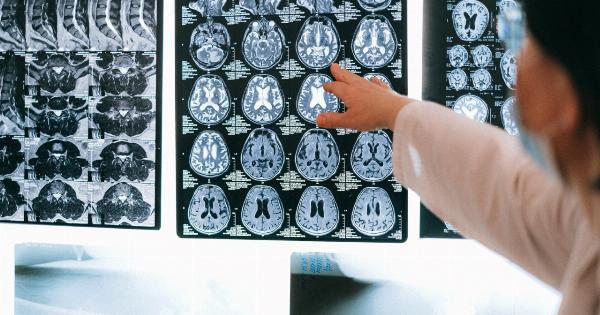While some health conditions are quite common, there are some rare and unusual health conditions that can be very serious. These conditions can affect different parts of the body and can be difficult to diagnose.
However, early detection is important for effective treatment. Here are some warning signs to watch for:.
1. Von Hippel-Lindau Disease (VHL)
Von Hippel-Lindau disease (VHL) is a rare genetic disorder that affects the nervous system, blood vessels, and other parts of the body. The condition is caused by a mutation in the VHL gene.
Symptoms of VHL can vary depending on the location and severity of the tumors, but can include:.
- Headaches
- Dizziness
- High blood pressure
- Abdominal pain
- Blurred vision
2. Haemophilus Influenzae type b (Hib)
Haemophilus influenzae type b (Hib) is an uncommon bacterial infection that can cause a range of symptoms. It is most commonly found in young children, but adults can also be affected. Symptoms can include:.
- Fever
- Joint pain and swelling
- Difficulty breathing
- Confusion or disorientation
- Seizures
3. Carney complex (CNC)
Carney complex (CNC) is a rare genetic disorder that can cause tumors to form in various parts of the body. The condition is caused by mutations in the PRKAR1A gene. Symptoms of CNC can include:.
- An increase in the size or number of moles
- Changes in skin color
- Cardiac myxomas
- Pituitary tumors
- Ovarian cysts
4. Paraneoplastic syndrome
Paraneoplastic syndrome is a group of rare disorders that can be caused by a tumor in the body. Symptoms of paraneoplastic syndrome can vary depending on the type of tumor and the location in the body. Common symptoms can include:.
- Muscle weakness
- Joint pain
- Unintended weight loss
- Fatigue
- Neurological symptoms, such as difficulty speaking or seizures
5. Ehlers-Danlos syndrome (EDS)
Ehlers-Danlos syndrome (EDS) is a group of rare genetic disorders that affect the connective tissue in the body. Symptoms can range from mild to severe and can vary depending on the type of EDS. Common symptoms can include:.
- Joint pain and dislocation
- Easy bruising
- Fragile skin and blood vessels
- Hypermobility of joints
- Chronic pain
6. Aortic dissection
An aortic dissection is a medical emergency that occurs when a tear develops in the inner wall of the aorta. The aorta is the largest blood vessel in the body and carries blood from the heart to the rest of the body.
Symptoms of an aortic dissection can include:.
- Sudden, severe chest pain that can radiate to the back or abdomen
- Difficulty breathing
- Low blood pressure
- Loss of consciousness
- Pale skin
7. Osteogenesis imperfecta (OI)
Osteogenesis imperfecta (OI) is a rare genetic disorder that affects the bones and connective tissue in the body. The condition is caused by a mutation in the COL1A1 or COL1A2 gene. Symptoms of OI can include:.
- Frequent bone fractures
- Weak or brittle bones
- Short stature
- Muscle weakness
- Scoliosis
8. Wilson’s disease
Wilson’s disease is a rare genetic disorder that causes copper to accumulate in the body, leading to damage to the liver, brain, and other organs. Symptoms of Wilson’s disease can range from mild to severe and can include:.
- Jaundice
- Fatigue
- Abdominal pain and swelling
- Difficulty speaking or swallowing
- Tremors or other movement disorders
9. Chronic granulomatous disease (CGD)
Chronic granulomatous disease (CGD) is a rare genetic disorder that affects the immune system and makes it difficult for the body to fight off infections. Symptoms of CGD can include:.
- Recurrent infections, particularly of the skin and lungs
- Fever
- Skin abscesses or granulomas
- Skeletal abnormalities
- Gastrointestinal problems
10. Acromegaly
Acromegaly is a rare hormonal disorder that occurs when the pituitary gland produces too much growth hormone. Symptoms of acromegaly can include:.
- Enlarged hands and feet
- Facial changes, such as a prominent jaw or brow ridge
- Deepening of the voice
- Sweating and odor
- Joint pain and stiffness
Conclusion
While rare health conditions like the ones listed above can be difficult to diagnose and treat, early detection is important for better outcomes.
If you experience any unusual symptoms, talk to your healthcare provider, who can determine if further testing or evaluation is necessary. Remember, the earlier a condition is detected and treated, the greater the likelihood of a positive outcome.




























